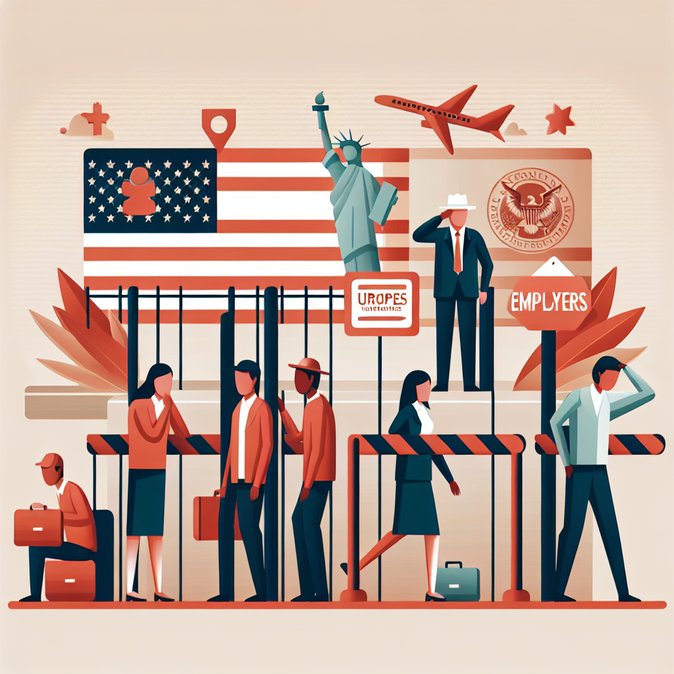
Late on 30 October, the U.S. Department of Homeland Security published an interim final rule terminating the 540-day automatic extension of Employment Authorization Documents (EADs) that has been in place since 2022. Effective immediately, foreign nationals who file EAD renewals—including H-4 spouses of H-1B professionals and F-1 students on Optional Practical Training—must stop working when their current card expires and wait for USCIS approval of the new card.
Indians are the largest contingent in both categories. Nearly 100,000 Indian H-4 spouses are projected to feel the impact over the next 12 months, according to estimates by immigration lawyers. The decision also hits the 250,000-plus Indian students enrolled at U.S. universities, many of whom rely on post-study work to secure long-term employer sponsorship.
USCIS says the change will ‘restore proper vetting’ and curb fraud, but employers warn of looming compliance headaches: Form I-9 re-verification cycles will accelerate, and project continuity could suffer if renewal filings are delayed. HR teams are urged to file EAD renewals at least 180 days in advance and budget for potential payroll interruptions. Some companies are exploring Canada or Mexico as alternative near-shore hubs to retain talent temporarily.
For Indian assignees already in the United States, the rule intensifies pressure to maintain legal work status; for India-based applicants, it raises the bar to demonstrate uninterrupted authorization. Mobility managers should audit renewal pipelines immediately and flag employees whose cards expire within six months.
The move is the latest in a series of Trump-era measures that have reversed Biden-period facilitation, including the recent US$100,000 H-1B application fee hike. Given the U.S. election cycle, further tightening cannot be ruled out, making contingency planning essential.
Indians are the largest contingent in both categories. Nearly 100,000 Indian H-4 spouses are projected to feel the impact over the next 12 months, according to estimates by immigration lawyers. The decision also hits the 250,000-plus Indian students enrolled at U.S. universities, many of whom rely on post-study work to secure long-term employer sponsorship.
USCIS says the change will ‘restore proper vetting’ and curb fraud, but employers warn of looming compliance headaches: Form I-9 re-verification cycles will accelerate, and project continuity could suffer if renewal filings are delayed. HR teams are urged to file EAD renewals at least 180 days in advance and budget for potential payroll interruptions. Some companies are exploring Canada or Mexico as alternative near-shore hubs to retain talent temporarily.
For Indian assignees already in the United States, the rule intensifies pressure to maintain legal work status; for India-based applicants, it raises the bar to demonstrate uninterrupted authorization. Mobility managers should audit renewal pipelines immediately and flag employees whose cards expire within six months.
The move is the latest in a series of Trump-era measures that have reversed Biden-period facilitation, including the recent US$100,000 H-1B application fee hike. Given the U.S. election cycle, further tightening cannot be ruled out, making contingency planning essential.








